Introducing New Writers and Editors for ‘Black Perspectives’
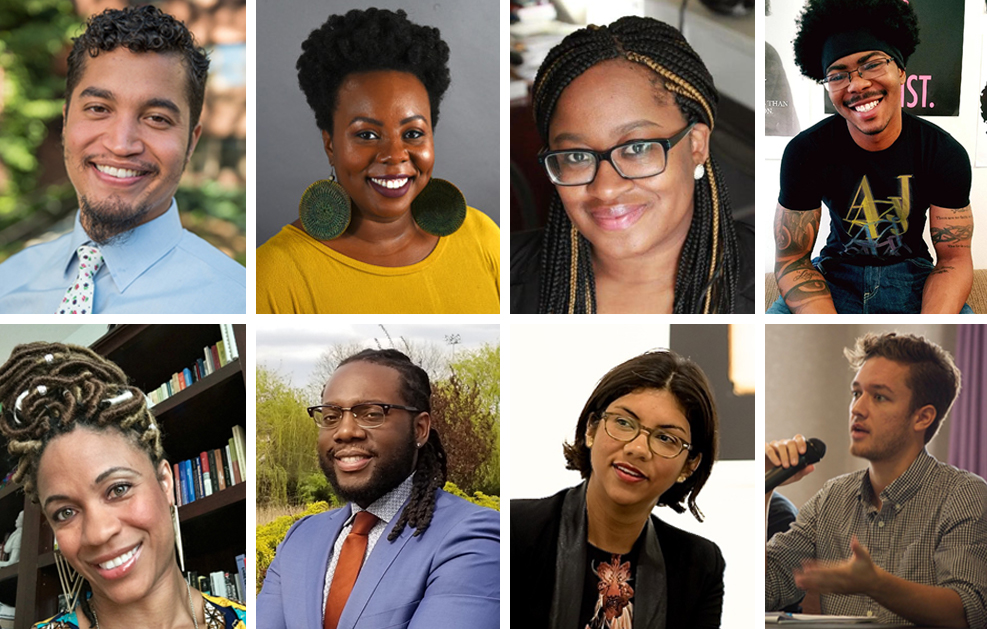
Black Perspectives is excited to announce our return from our annual summer break. We have excellent essays, interviews, roundtables, and forums planned for the coming weeks and months from both new and returning scholars and writers. We have made several changes to our editing team as well as added talented new writers to our ever-growing list of contributors. Continue reading below to learn more about this year’s Black Perspectives team.
Editors
We’re excited to announce this year’s additions to our editing team at Black Perspectives. They will join our existing editors who organize, edit, and facilitate content on a daily basis. Please join us in welcoming these new editors to the team!
Senior Editors
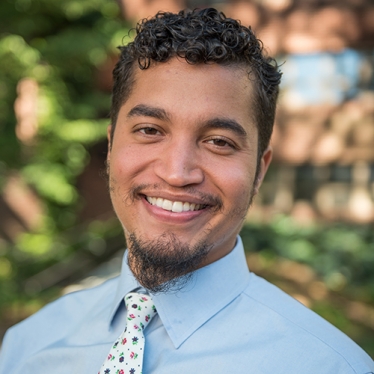 J.T. Roane returns this year as Senior Editor. Roane is an Assistant Professor of Africana Studies at Arizona State University. Roane is broadly concerned about matters of geography, sexuality, and religion in relation to Black communities. He is at work on a manuscript, Dark Agoras: Insurgent Black Social Life and the Politics of Place in Philadelphia, which historicizes multiple modes of insurgent spatial assemblage Black communities articulated in Philadelphia in the second half of the twentieth. Follow him on Twitter @JTRoane.
J.T. Roane returns this year as Senior Editor. Roane is an Assistant Professor of Africana Studies at Arizona State University. Roane is broadly concerned about matters of geography, sexuality, and religion in relation to Black communities. He is at work on a manuscript, Dark Agoras: Insurgent Black Social Life and the Politics of Place in Philadelphia, which historicizes multiple modes of insurgent spatial assemblage Black communities articulated in Philadelphia in the second half of the twentieth. Follow him on Twitter @JTRoane.
 Sasha Turner begins this new season as a Senior Editor, joining J.T. Roane. Turner is Associate Professor of History at Quinnipiac University where she teaches courses on the Caribbean and the African Diaspora, women, piracy, colonialism, and slavery. She is the author of Contested Bodies: Pregnancy, Childrearing, and Slavery in Jamaica, which examines the struggles for control over biological reproduction and how central childbearing was to the organization of plantation work, the care of slaves, and the development of their culture. She completed a PhD at Cambridge University. Her research on gender, race, and the body — and women, children, and emotions — has been published in the Journal of Women’s History, Slavery and Abolition, and Caribbean Studies and has been supported by Rutgers University Race, Ethnicity, and Gender Studies Fellowship; Washington University in St. Louis African and African American Studies Fellowship; and the Richards Civil War Era Center and Africana Research Center Fellowship at the Pennsylvania State University. She is currently conducting research on her new book project, tentatively titled, Slavery, Emotions, and Gendered Power as a Fellow at Yale University’s Gilder Lehrman Center for the Study of Slavery, Resistance, and Abolition. Follow her on Twitter @drsashaturner.
Sasha Turner begins this new season as a Senior Editor, joining J.T. Roane. Turner is Associate Professor of History at Quinnipiac University where she teaches courses on the Caribbean and the African Diaspora, women, piracy, colonialism, and slavery. She is the author of Contested Bodies: Pregnancy, Childrearing, and Slavery in Jamaica, which examines the struggles for control over biological reproduction and how central childbearing was to the organization of plantation work, the care of slaves, and the development of their culture. She completed a PhD at Cambridge University. Her research on gender, race, and the body — and women, children, and emotions — has been published in the Journal of Women’s History, Slavery and Abolition, and Caribbean Studies and has been supported by Rutgers University Race, Ethnicity, and Gender Studies Fellowship; Washington University in St. Louis African and African American Studies Fellowship; and the Richards Civil War Era Center and Africana Research Center Fellowship at the Pennsylvania State University. She is currently conducting research on her new book project, tentatively titled, Slavery, Emotions, and Gendered Power as a Fellow at Yale University’s Gilder Lehrman Center for the Study of Slavery, Resistance, and Abolition. Follow her on Twitter @drsashaturner.
Associate Editor
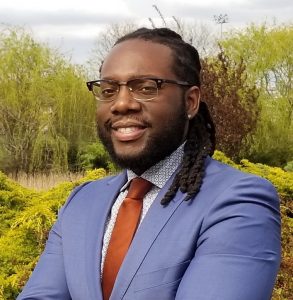 Julius B. Fleming, Jr. joins Black Perspectives this year as an Associate Editor, joining existing Associate Editor Guy Emerson Mount. Fleming is an Assistant Professor of English at the University of Maryland, College Park. Specializing in African Diasporic literatures and cultures, he has particular interests in performance studies, decolonial theory, visual culture, diaspora, and medicine—especially where they intersect with race, gender, and sexuality. Julius is currently completing his first book manuscript, tentatively entitled “Black Patience: Performance and the Civil Rights Movement.” His work appears in Callaloo, American Literary History, Text and Performance Quarterly, The James Baldwin Review, and The Southern Quarterly. Currently serving as an Associate Editor of Callaloo: A Journal of African Diaspora Arts and Letters, he has been awarded fellowships from the Mellon Foundation, the Woodrow Wilson Foundation, the Social Science Research Council, and the University of Virginia’s Carter G. Woodson Institute. In 2018, Julius received the Emerging Scholar Award from the Comparative and International Education Society. Follow him on Twitter @juliusflemingjr.
Julius B. Fleming, Jr. joins Black Perspectives this year as an Associate Editor, joining existing Associate Editor Guy Emerson Mount. Fleming is an Assistant Professor of English at the University of Maryland, College Park. Specializing in African Diasporic literatures and cultures, he has particular interests in performance studies, decolonial theory, visual culture, diaspora, and medicine—especially where they intersect with race, gender, and sexuality. Julius is currently completing his first book manuscript, tentatively entitled “Black Patience: Performance and the Civil Rights Movement.” His work appears in Callaloo, American Literary History, Text and Performance Quarterly, The James Baldwin Review, and The Southern Quarterly. Currently serving as an Associate Editor of Callaloo: A Journal of African Diaspora Arts and Letters, he has been awarded fellowships from the Mellon Foundation, the Woodrow Wilson Foundation, the Social Science Research Council, and the University of Virginia’s Carter G. Woodson Institute. In 2018, Julius received the Emerging Scholar Award from the Comparative and International Education Society. Follow him on Twitter @juliusflemingjr.
Managing Editor
 Clayton Finn begins this year as Managing Editor. Finn is a PhD student at the University of Pittsburgh. He holds a BA in African American Studies and an MA in American Studies from California State University, Fullerton. His research explores the intersections of culture, race, and identity with specific focus on how early-twentieth-century respectability politics impacted Black art and activism, particularly relating to notions of gender and sexuality. He is committed to making academic scholarship more accessible to a broader public. Finn currently does editorial work for multiple social justice and history-focused publications and was previously an Assistant Editor at Black Perspectives. Follow him on Twitter @claytontfinn.
Clayton Finn begins this year as Managing Editor. Finn is a PhD student at the University of Pittsburgh. He holds a BA in African American Studies and an MA in American Studies from California State University, Fullerton. His research explores the intersections of culture, race, and identity with specific focus on how early-twentieth-century respectability politics impacted Black art and activism, particularly relating to notions of gender and sexuality. He is committed to making academic scholarship more accessible to a broader public. Finn currently does editorial work for multiple social justice and history-focused publications and was previously an Assistant Editor at Black Perspectives. Follow him on Twitter @claytontfinn.
Editorial Board
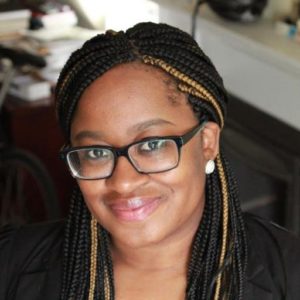 Keisha N. Blain joins the Black Perspectives Editorial Board this year. Blain is a historian who writes on race, politics, and gender. She obtained a PhD in History from Princeton University. She is an Associate Professor of History at the University of Pittsburgh and the Editor-in-Chief of The North Star. She served as the first senior editor of Black Perspectives from 2014 to 2018. She is the author of the award-winning book Set the World on Fire: Black Nationalist Women and the Global Struggle for Freedom (University of Pennsylvania Press, 2018) and co-editor of To Turn the Whole World Over: Black Women and Internationalism (University of Illinois Press, 2019); New Perspectives on the Black Intellectual Tradition (Northwestern University Press, 2018); and Charleston Syllabus: Readings on Race, Racism and Racial Violence (University of Georgia Press, 2016). Her work has been published in several academic journals such as the Journal of Social History and Souls; and popular outlets including the Huffington Post, The Washington Post, and The Feminist Wire. Follow her on Twitter @KeishaBlain.
Keisha N. Blain joins the Black Perspectives Editorial Board this year. Blain is a historian who writes on race, politics, and gender. She obtained a PhD in History from Princeton University. She is an Associate Professor of History at the University of Pittsburgh and the Editor-in-Chief of The North Star. She served as the first senior editor of Black Perspectives from 2014 to 2018. She is the author of the award-winning book Set the World on Fire: Black Nationalist Women and the Global Struggle for Freedom (University of Pennsylvania Press, 2018) and co-editor of To Turn the Whole World Over: Black Women and Internationalism (University of Illinois Press, 2019); New Perspectives on the Black Intellectual Tradition (Northwestern University Press, 2018); and Charleston Syllabus: Readings on Race, Racism and Racial Violence (University of Georgia Press, 2016). Her work has been published in several academic journals such as the Journal of Social History and Souls; and popular outlets including the Huffington Post, The Washington Post, and The Feminist Wire. Follow her on Twitter @KeishaBlain.
Contributors
We’re also excited to announce this year’s new contributors to Black Perspectives. This diverse group of talented scholars will explore a range of topics including the Afro-Caribbean and Afro-Latinx experiences, Black social movements, Black feminism, sexuality, and Black transness. These new writers will help to further enhance the content on the blog and aid in our ongoing effort to expand the boundaries of Black intellectual history. They will join our roster of more than forty scholars who write for us on a monthly basis. Please join us in welcoming these new writers to the team!
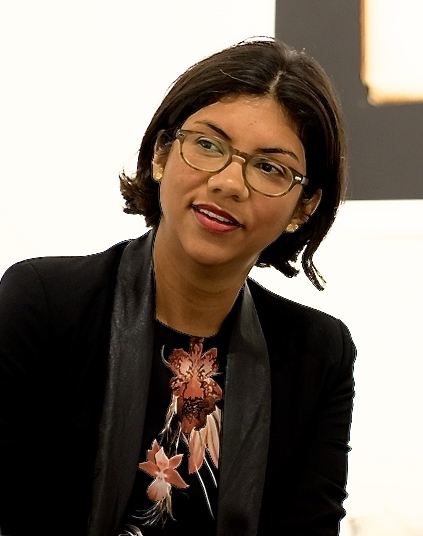 Hilda Lloréns, PhD is an anthropologist focusing on the Caribbean, Latinxs, and African Diaspora in the Americas. The thread that binds Dr. Lloréns’ scholarship is understanding how racial and gender inequality manifest itself in bodies and the body politic, culture and cultural production, nation building, access to environmental resources, and exposure to environmental degradation and harm. Her research and writing is centrally concerned with critiquing structural inequalities and dismantling taken for granted notions of power. Dr. Lloréns is the author of Imaging the Great Puerto Rican Family: Framing Nation, Race and Gender during the American Century (Lexington Books, 2014). Her second book, MotherLand: Afro-Puerto Rican Women Forging Good Lives and Fighting for Environmental Justice, is under contract with the Decolonizing Feminisms: Antiracist and Transnational Praxis Series, University of Washington Press. She is a founding member of the Black Latinas Know Collective and is a Professor of Anthropology in the Sociology & Anthropology Department at the University of Rhode Island. Follow her on Twitter @shecoanarchist.
Hilda Lloréns, PhD is an anthropologist focusing on the Caribbean, Latinxs, and African Diaspora in the Americas. The thread that binds Dr. Lloréns’ scholarship is understanding how racial and gender inequality manifest itself in bodies and the body politic, culture and cultural production, nation building, access to environmental resources, and exposure to environmental degradation and harm. Her research and writing is centrally concerned with critiquing structural inequalities and dismantling taken for granted notions of power. Dr. Lloréns is the author of Imaging the Great Puerto Rican Family: Framing Nation, Race and Gender during the American Century (Lexington Books, 2014). Her second book, MotherLand: Afro-Puerto Rican Women Forging Good Lives and Fighting for Environmental Justice, is under contract with the Decolonizing Feminisms: Antiracist and Transnational Praxis Series, University of Washington Press. She is a founding member of the Black Latinas Know Collective and is a Professor of Anthropology in the Sociology & Anthropology Department at the University of Rhode Island. Follow her on Twitter @shecoanarchist.
 Marquis Bey is an Assistant Professor of African American Studies at Northwestern University and has a PhD in English from Cornell University. Bey’s work focuses on Blackness and fugitivity, transness, and Black feminism. He is particularly concerned with modes of subjectivity that index otherwise ways of being, utilizing Blackness and transness — as fugitive, extra-ontological postures — as names for such otherwise subjectivities. His first book, Them Goon Rules: Fugitive Essays on Radical Black Feminism (University of Arizona Press, 2019), is a collection of creative nonfiction essays weaving together the personal, the vernacular, and the scholarly. The various essays put forth a meditation on Blackness and Black feminism that departs from general identitarian understandings and moves toward conceptions of fugitive being. Fashioning fugitive Blackness and feminism around a line from Lil’ Wayne’s “A Milli,” Them Goon Rules is a work of “auto-theory” that insists on radical modes of thought and being as glimpsed through Blackness and non-normative genders. His second book, Anarcho-Blackness: Notes Toward a Black Anarchism, is a brief, pamphlet-like text theorizing what might be considered Black anarchism. He uses the prefixal “anarcho-” as the crux for articulating the spirit, as it were, of anarchism throughout aspects of the Black Radical Tradition. Follow him on Twitter @MarquisDBey.
Marquis Bey is an Assistant Professor of African American Studies at Northwestern University and has a PhD in English from Cornell University. Bey’s work focuses on Blackness and fugitivity, transness, and Black feminism. He is particularly concerned with modes of subjectivity that index otherwise ways of being, utilizing Blackness and transness — as fugitive, extra-ontological postures — as names for such otherwise subjectivities. His first book, Them Goon Rules: Fugitive Essays on Radical Black Feminism (University of Arizona Press, 2019), is a collection of creative nonfiction essays weaving together the personal, the vernacular, and the scholarly. The various essays put forth a meditation on Blackness and Black feminism that departs from general identitarian understandings and moves toward conceptions of fugitive being. Fashioning fugitive Blackness and feminism around a line from Lil’ Wayne’s “A Milli,” Them Goon Rules is a work of “auto-theory” that insists on radical modes of thought and being as glimpsed through Blackness and non-normative genders. His second book, Anarcho-Blackness: Notes Toward a Black Anarchism, is a brief, pamphlet-like text theorizing what might be considered Black anarchism. He uses the prefixal “anarcho-” as the crux for articulating the spirit, as it were, of anarchism throughout aspects of the Black Radical Tradition. Follow him on Twitter @MarquisDBey.
 Layla Brown-Vincent is an Assistant Professor of Africana Studies at the University of Massachusetts Boston. She earned a PhD in Cultural Anthropology in 2016 from Duke University. Layla is also a proud graduate of North Carolina Central University. Her areas of specialization include Afro-Latin American social movements, Pan-Africanism, and Black feminism. Her research have appeared in several books and journals, including The Journal of Culture & Education; Black Lives Have Always Mattered: A Collection of Essays, Poems, and Personal Narratives (2Leaf Press, 2017); and The Fire Now: Anti-Racist Scholarship in Times of Explicit Racial Violence (ZED Books, 2018). Follow her on Twitter @PanAfrikFem_PhD.
Layla Brown-Vincent is an Assistant Professor of Africana Studies at the University of Massachusetts Boston. She earned a PhD in Cultural Anthropology in 2016 from Duke University. Layla is also a proud graduate of North Carolina Central University. Her areas of specialization include Afro-Latin American social movements, Pan-Africanism, and Black feminism. Her research have appeared in several books and journals, including The Journal of Culture & Education; Black Lives Have Always Mattered: A Collection of Essays, Poems, and Personal Narratives (2Leaf Press, 2017); and The Fire Now: Anti-Racist Scholarship in Times of Explicit Racial Violence (ZED Books, 2018). Follow her on Twitter @PanAfrikFem_PhD.

Wow what an impressive group. I will be following each on Twitter